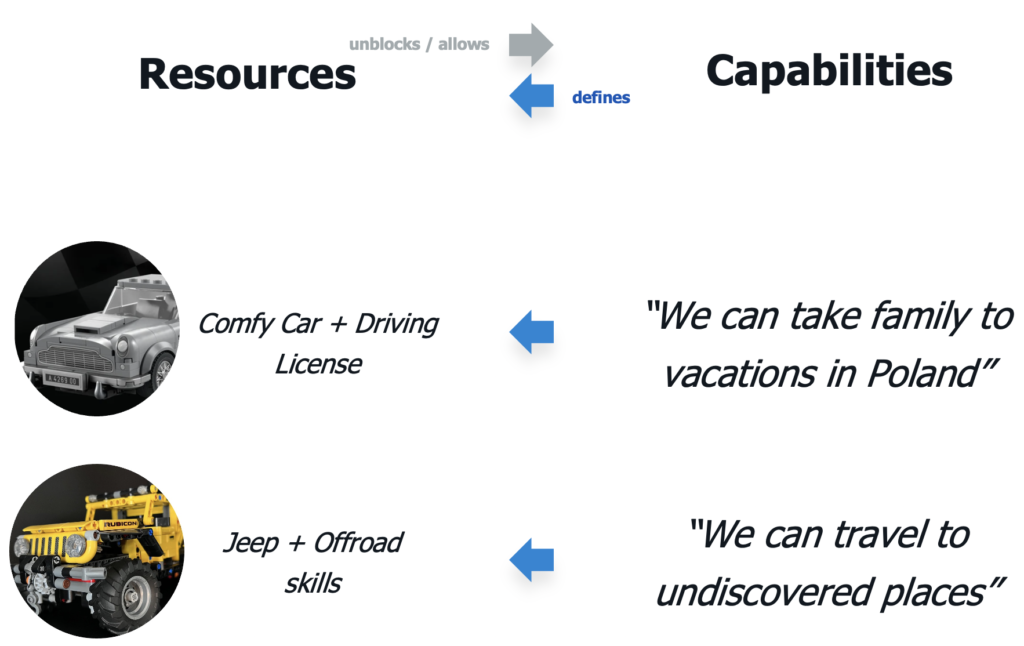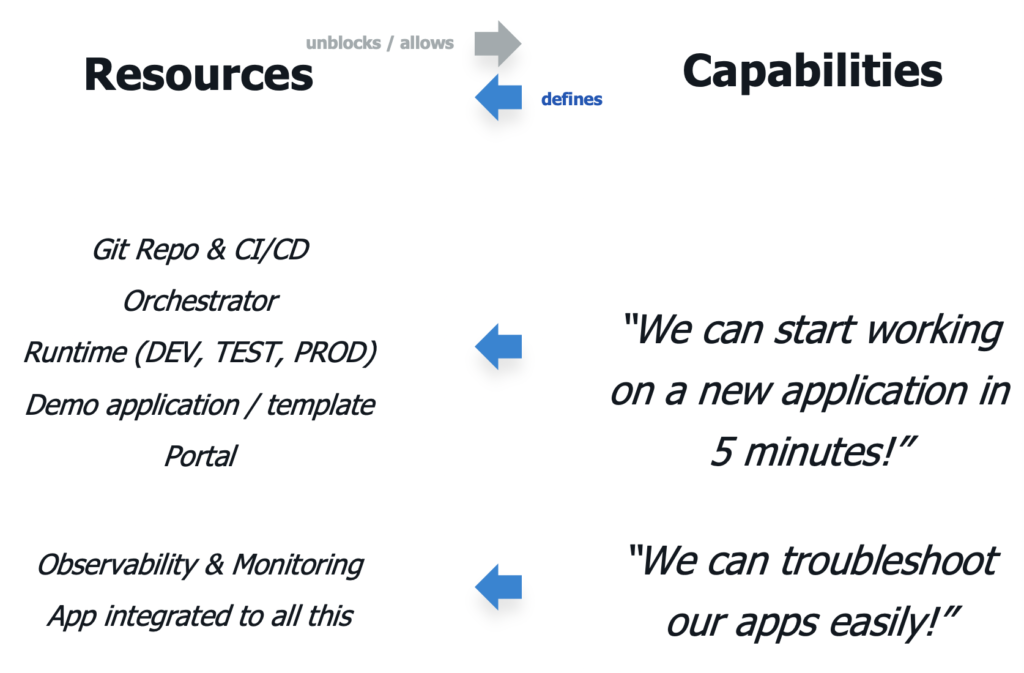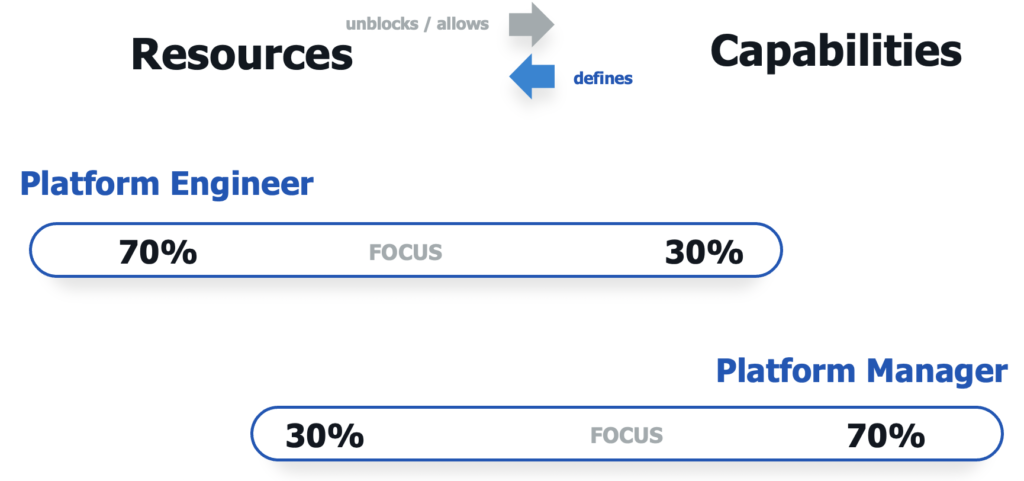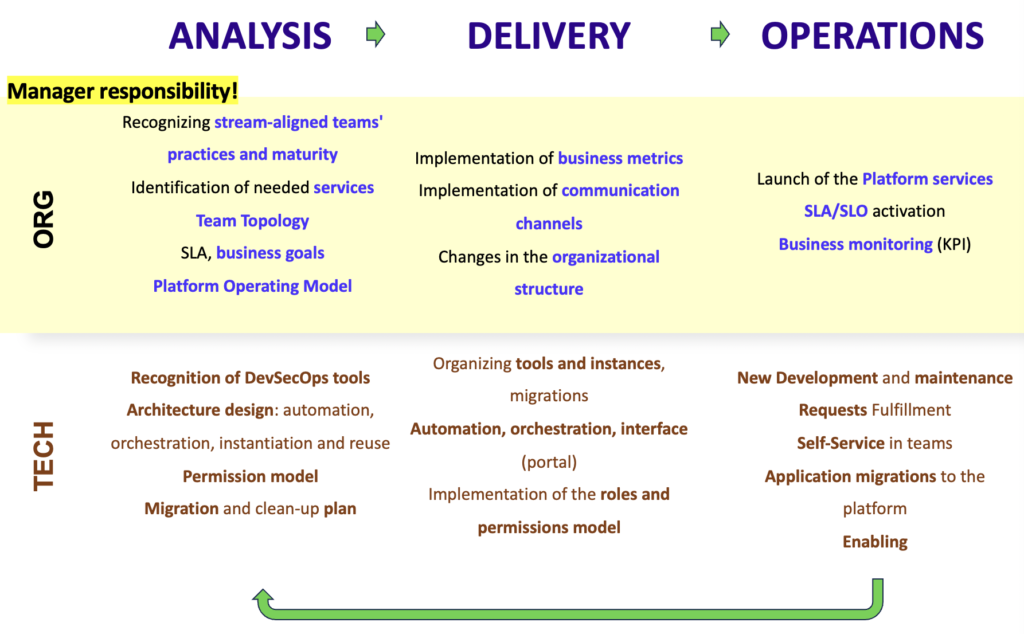Should we make our best DevOps Engineers – Platform Managers? It may sound like an obvious choice – who will manage the platform better than a person who can build it from scratch – but this thinking may be… misleading.
I am not claiming that your best DevOps Engineer won’t do the job – but being a Platform Manager requires a bit different set of skills than being an Engineer. Let’s quickly review skills and responsibilities, and how Platform Manager role is different than Platform Engineer role.
Join me for a Webinar: Platform Engineering for Managers, 06.11.2024, 02:00 pm CET, online, 30 minutes! We will discuss the details of the article you are reading. Register here: https://drogaarchitektait.pl/en/webinar-pe-for-managers/
Resources vs Capabilities
We will start with establishing some mutually understood terms: a difference between Resources and Capabilities. In short, Resources are all the staff necessary to deliver the right Capability. How does it relate with the topic? It’s going to be clear very soon!

Imagine you want to take your family to nice vacations in Poland (which I strongly recommend to do). If you can do it – this is your capability. Another one can be that you want to be able to travel to some undiscovered, wild places. Another capability. Those two capabilities, even if they sound similar – will need totally different resources.
To take a family to nice vacations, you just need a comfy car and driving license. But to take the same family to undiscovered places – you probably need not-so-comfy, but reliable offroad car and some skills how to drive in the bush and mud. In everyday live, we usually thing about Capabilities first – a need we have – and resources second, thinking about how to gain the capability.
Now, time for an example within Platform Engineering area.

In IT, especially within low-level topics such as runtime, deployments or operational tooling – we still need to maintain that way of thinking. Selecting tools, services & platform operating model, we first need to think about what kind of capabilities we want to have. And those capabilities are defined by needs of our Platform Users.
One of the capability our IT organization may need is a quick onboarding – because our company strategy is to scale, so we don’t want to waste time of new-commers and make them deliver value as soon as possible. Or, we want to troubleshoot our applications easy, because now our downtimes cost us too much.
For that, we need resources: repositories, runtime, portal, some demo applications to start fast – and observability stack allowing us quick troubleshooting. Resources should be as minimum as possible to unblock the capability – and managers work is to keep track on this, avoiding over-simplification or over-engineering.
So, what’s the difference between Engineer and Manager? Well, those two roles should prioritise their focus differently between Capabilities and Resources.

Platform Manager responsibilities
Platform Manager needs to have the skills necessary to work on capabilities. In order to do the job right, a manager needs to know all the techniques to discover cognitive load, ability to define Platform Services, ability to understand what kind of responsibility boundaries we need between Platform & stream-aligned teams, how to measure and communicate platform goals, how to talk to non-technical management about Platform investment – and how to shape Platform so it fits company strategy.
What is important to understand as manager – is that capabilities are the ones which should define resources, not the other way around. Just like you should not buy a car first, and think about where to drive it later (because the destinations you are interested in are in other continent), the same applies to DevSecOps tools – you should not start your Platform journey with jumping directly into tech, installing orchestrators or portal. Think about what you want to achieve first. Every discussion about Capabilities should be triggered by your company strategy.

Conclusion
As you can see – all the skills the Platform Manager should have are focused on the Platform Strategy – why we build a Platform in a way we build it. Being a good Platform Manager requires both analytical skills (recognising Cognitive Load is nothing more than business analysis, if you treat your Platform users as your business) & deep technology understanding. Simplifying this sentence even more: you should be able to link your structure of Kubernetes namespaces with strategic documents – and this structure should be a result of strategic documents, not the other way around.
If you are a DevOps Engineers, who wants to jump into managerial position – you may like my Platform Engineering for Managers course. All the skills, techniques, lessons learned required to be a good Internal Developer Platform manager are covered in details there. Here is a summary on what you can expect to find there:
Platform Engineering for Managers Webinar
Link to registration: https://drogaarchitektait.pl/en/webinar-pe-for-managers/



